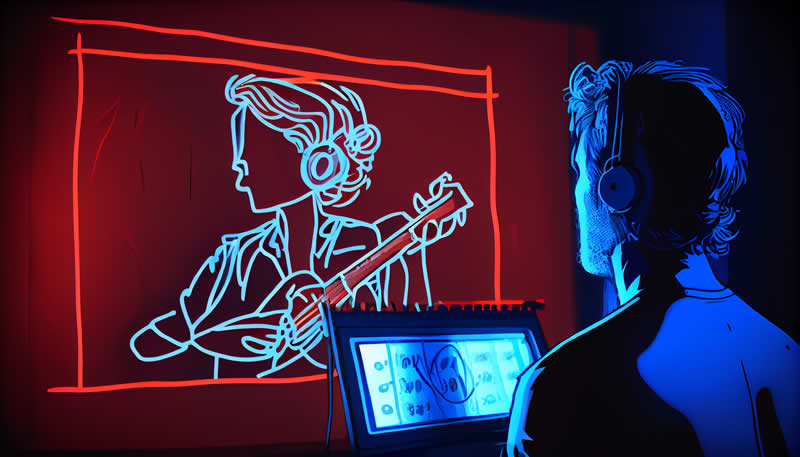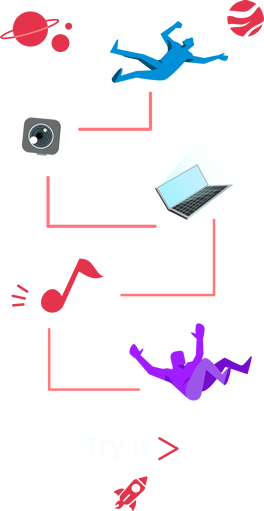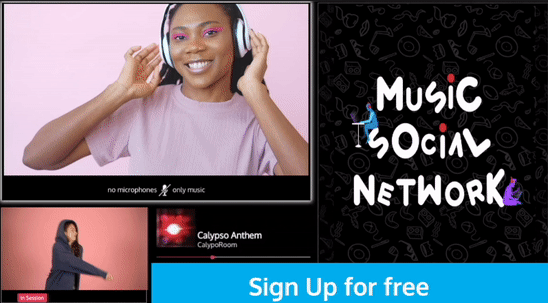Music demo: definition and best reasons to make one
Making music can be approached in a variety of ways. There is no wrong way to begin, whether you start by making rhythms or by taking a walk.
To sketch out your thoughts, however, a popular approach in the early stages of development is to produce a music demo.
By recording your demos, you'll clarify your musical goals, boost your output, and expand your career options. Making music involves many intricate and challenging steps. This is fortunately not one of them.
We'll explain why recording your demo tracks is so crucial in this article. Your music will have more structure, clarity, and consistency if you adopt this simple practice.
What is a music demo?
Demo tracks are unfinished, early versions of your tunes. Consider these as basic examples of the music you're currently creating.
Completed songs have excellent performances, flawless recordings, careful production, and mastering. None of these characteristics must be present in demos.
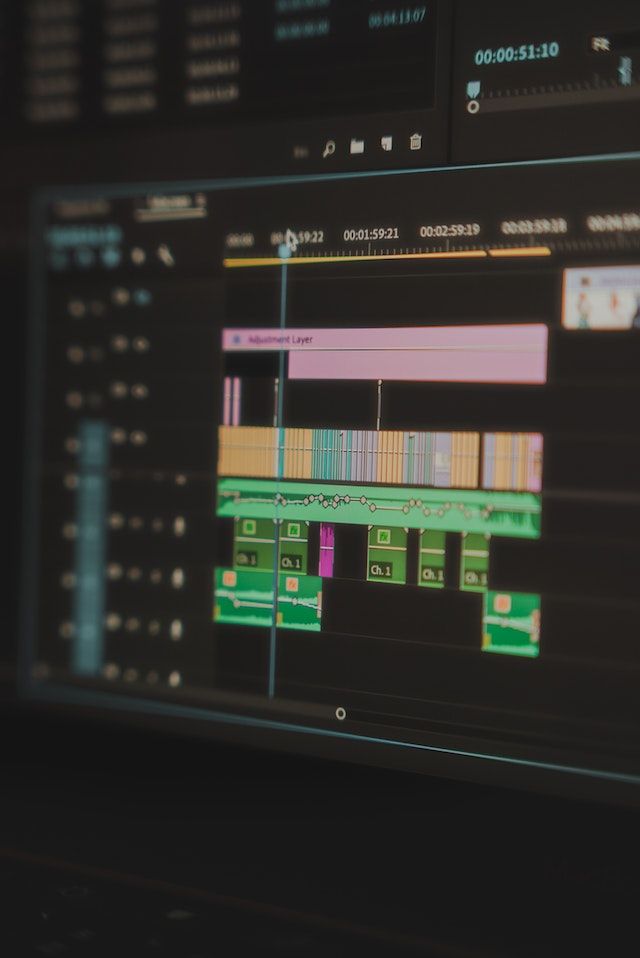
A music demo recording's purpose is to give the songs you're writing structure. You may show people your ideas and keep track of your efforts with the aid of these recordings.
Demos can be quick and unplanned, like when you record acoustic music on your smartphone. Or they might be made and carefully documented. The method you use to record them entirely depends on your objectives.
Demos will be helpful if you wish to showcase your new work in the hopes of getting a show, management, or label. Early on in the production of your music, you want to offer people in the music business a taste of where it's going.
To present their music to local venues and tastemakers, emerging artists create demos. Professional songwriters take the time to record them and share them with producers, labels, and other people in order to discover prospects for their work.
Why should musicians prepare a music demo?
Demos record the distinct intensity and excitement of the moment
You have the ability to record intense emotions and unexpected creativity when you record demos. Hearing your concept recorded is very different from attempting to recall it afterwards and duplicate it.
When writing, you have a sense of emotional urgency and creative euphoria that must sustain your idea for a very, very long period of time. The best way to capitalize on your enthusiasm is to create a demo while you're still fired up and enthusiastic about your music.
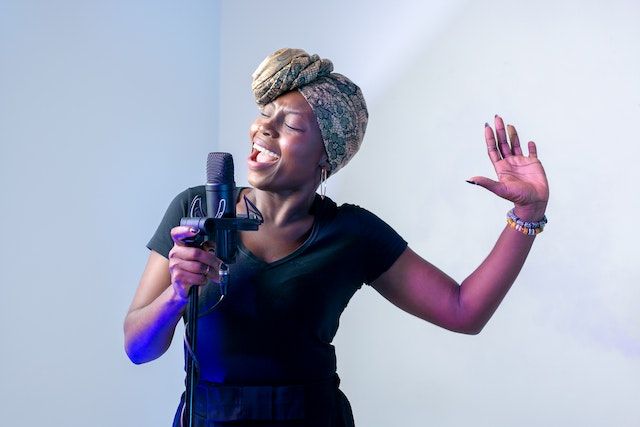
To give a structure to first ideas
Making demos provides your music a strong foundation to build upon, which is one of the main reasons to do so. Demos turn ad hoc ideas into well-organized tunes.
Demos are used by labels, managers, and venues to decide whether to sign new artists
Music demos provide new chances for musicians, regardless of skill level. They provide early-stage industry influencers with enough information about what you're working on for them to decide whether they want to collaborate with you.
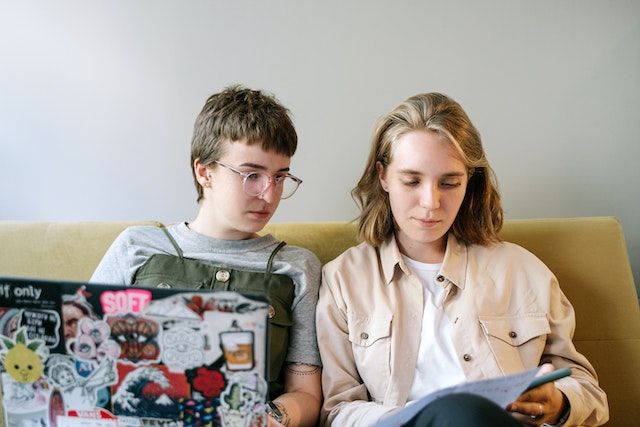
Demos will help you book performances and gain momentum as an artist if you haven't yet released any music on a formal basis. Consider your submitted demos as examples of your work and the potential uses for your music.
Demos help you remember your songs
It may be challenging for you to keep track of everything you're working on if you're a prolific writer. Making demo recordings and finding labels for them will make your life as a musician much easier. Demos are a crucial part of your creative process if you're serious about producing music.
Demos offer a useful structure for recording
When you decide to record the finished version of your song, creating demos will save you some time. Your demos' instrumentation, BPM, and early production decisions may simply be carried over to your finished recordings.
You are forced to make critical creative decisions when recording demos
Making decisions when you are stuck for ideas is considerably tougher than creating while your creative juices are flowing. Songs sometimes start off with missing pieces, such as a chorus without lyrics or a lacking chord sequence for the bridge.

Making decisions necessary to complete songs is forced upon you during the demo recording process. Remember that these choices do not have to be final. Demos are snapshots of your music's development, not completed compositions.
Who to send your music demo to?
Before deciding to whom to deliver their demo, artists should have a clear understanding of their goals. A demo tape can be sent to collaborators (such as musicians, producers, etc.) or contacts in the music industry, in general (people from labels, management, promoters, etc.).
Sending your demo to labels
Bands and artists searching for someone to assist them take their marketing to the next level by sending a demo to labels or comparable businesses.
In case they decide to re-record and legally release that music under their name, labels frequently request that you deliver unpublished, unfinished content.

Sending your demo to potential collaborators
Sending a demo to collaborators (songwriters, other artists, etc.) serves to explain concepts in a straightforward manner so they can understand them or to suggest improvements that can be accurately documented at a later time.
The production quality doesn't need to be as excellent in this case because a complete version of the song will be made later, and it's known that the demo is only a technique to get the main concept across.
How to record a music demo
The process of creating a demo is quite similar to that of (creating a professional song https://www.calypsoroom.com/How-to-start-a-song.html). Writing your words and melodies should come first, followed by adding accompaniment, such as live instruments or a rhythm.
When composing a song based on already-prepared music, the beat or instruments may emerge first in some cases.
The recording, mixing, and mastering processes are what distinguish a demo from other music. Your demo will be recorded in a lower-quality environment, occasionally even over the phone, as opposed to traveling to or having a luxury studio of your own.
Following that, demos frequently don't include any mixing or mastering at all, while some demos contain a fast mix created by someone who isn't yet fully qualified.
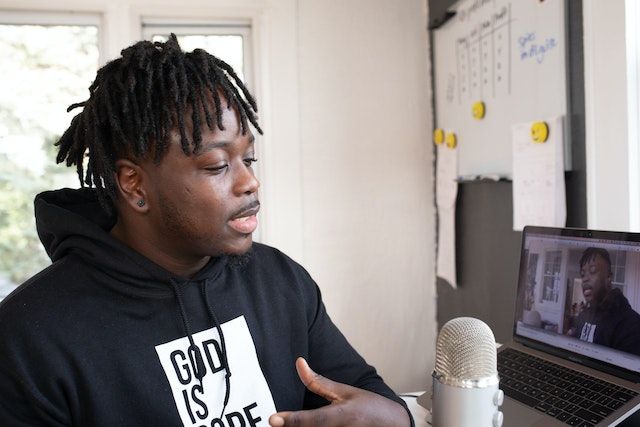
What is a music demo - Conclusion
Demos may not appear to be all that important, but they actually are. Demo recording is one of the few activities in music that is both simple to undertake and has significant advantages. Demoing your tracks often can benefit both you and your music greatly.
If you liked this post and would want to read more tips for your music career and general information about the music industry, please visit our blog section.
You're here because you love music, so please try to listen to it together with your friends or strangers, at the same time, connected by webcam in CalypsoRoom.
In CalypsoRoom we believe music is the most powerful tool to bring people together, and for this reason, we developed an online music social network where you can connect with friends or strangers while listening to music simultaneously, connected via webcam.
Are you a music artist or label and do you want to give your music a further dimension? Do you own or co-own the master and publishing rights to your music? If yes, consider to post it on CalypsoRoom: it’s free, you keep 100% of your copyright, you promote your music in a new way, and you get a new revenue stream! Check it out.
Thanks for reading,
CalypsoRoom Team
back
Written by CalypsoRoom Editorial Team
The CalypsoRoom Editorial Team is a skilled and diverse group of writers, researchers, and industry specialists who have access to Calypso's data and information in order to give you broad knowledge about the music industry as well as helpful advice to help you manage your music and dancing career.
Updated January 2023
Company number: 681223
James's Walk 31, Dublin, Ireland
contact@calypsoroom.com
+353 (89) 435 8928

